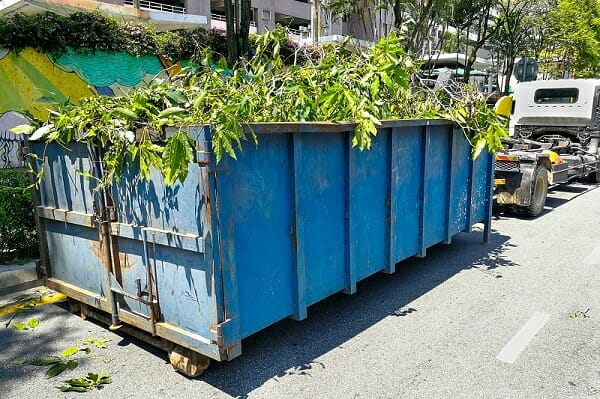- BY Evelyn
- POSTED IN Dumpster Rental
- WITH 0 COMMENTS
- PERMALINK
- STANDARD POST TYPE
Plastic waste can be one of the least convenient things to deal with around the home. While some plastics can be recycled, others are more or less meant to be disposed of, and that means that you need to either throw them away or find another use for them.
Learn why so many customers in Adelphia and area come back to us for repeat business or lead us to referrals: we know how to provide effective waste management solutions, and we strive to exceed your expectations every time we deliver a roll-away bin in Adelphia and Howell Township, New Jersey, including the entire 07710 ZIP code.
While groups like Akron are able to turn plastic into fuel, individual people do not have the luxury of their own specialized research to help them recycle plastics. So how do you deal with the plastics that you have left over, and how can you handle them sustainably?
Avoid Single-Use Plastics
Single-use disposable plastics are some of the worst on the market, existing purely to package something and then be thrown away. These are incredibly wasteful, and while they can be hard to avoid depending on what you are buying, even a small amount of plastic can be a problem.
If you regularly rely on single-use plastics, then the amount of plastic that you throw away will quickly begin to add up. Switching to re-usable plastics or non-plastic alternatives is far more efficient, and it can really help you avoid dumping excess plastics every single week.
Good examples of single-use plastics to avoid are things like plastic cutlery, plastic bags used for shipping, and anything that you would normally throw away after one or two uses. If the plastic can’t be recycled at all, then they are a massive sustainability concern.
Anything single-use is a waste, no matter the materials. If you can slowly phase them out of your daily life and routine, then you will save plenty of time and money while also helping the environment. Even one or two steps towards sustainability can make a huge difference.
Recycle Everything You Can
Recycling plastic is a very important part of making sure that you do not waste any, and quite a lot of plastic is recyclable in this day and age. Being able to recycle it rather than throw it away ensures that you are not “wasting” any of the materials and are instead making sure that they can be used again.
You can recycle quite a lot of different plastic items, including some items that you do not even know contain plastic – for example, chewing gum, envelopes, and takeout coffee cups. Always check the packaging of a plastic item to see if it contains the ‘recyclable’ symbols or recycling instructions.
Many people will remember when plastic recycling was not a widespread option, which can mean that it is very easy to fall into the mindset of “anything containing plastic is not recyclable.” If you can un-learn that association, then it becomes much easier to reduce your plastic waste.

If you can’t recycle the plastic in something, then keep that in mind and try to buy an alternate brand further down the line. Something that you can’t recycle and can’t re-use needs to be thrown away, and that is a situation that you want to avoid if you are staying sustainable.
Re-Use Plastics
One of the less common ways to deal with an excess of plastic is by re-using the plastic that you have. This could be for all kinds of purposes, from craft-related hobbies to treating them as storage options, as long as they cut down on how much plastic you are actually throwing away.
Simple ideas are things like using plastic cups as a planter or a small storage option or even using them to make interesting decorations for your home. On a larger scale, you might be able to use old plastic pipes in creative ways, such as making a drainage funnel in a large sloped garden.
However, you plan to re-use old plastics, try to use up as much as you can. The less you have left, the less you will need to throw away. Try to create things that you would otherwise have to buy anyway – this can save you money and prevent you from having to buy something new that might also contain plastic.
You can’t always re-use everything, but even something as simple as using plastic in arts and crafts projects can massively reduce the amount that you are throwing away. Using non-recyclable plastics for this kind of hobby work can be a very efficient way of going zero-waste in terms of plastic.
Reduce Your Plastic Consumption
If you really want to reduce how much plastic you waste, then buying fewer things that contain plastic is an obvious solution. The less you put into your home, the less you will have to throw away later, which can be a major thing to consider if you are constantly worrying about how much waste you create.
Not only that but reducing plastic as a whole is a major part of being sustainable. If you want to start looking into a more sustainable life, then cutting down on the amount of plastic that you are using is one of the best ways to get started.
If there are things you buy regularly that have very plastic-focused packaging, start looking for competing brands that use more efficient or less plastic-heavy options. There are even some companies that make plastic-free packaging out of cardboard and similar materials.
If you seem to be throwing away a lot of plastic packaging, then that is likely because you are buying too much. You want to reduce your plastic consumption as much as possible, even if that means switching to another brand or buying from more sustainable sources.

 610-679-8449
610-679-8449